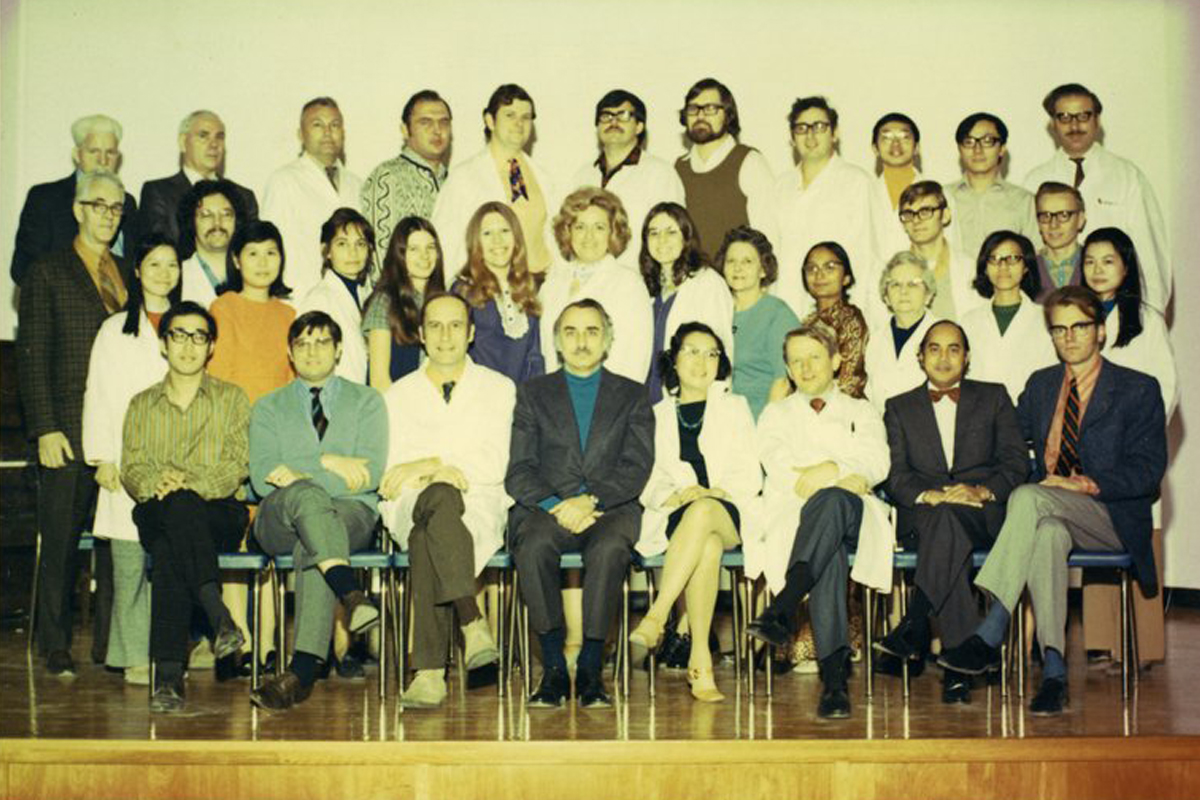
The Class of 1972
Celebrating 25 years of innovation at the department of biochemistry & medical genetics
This year marks a significant milestone for the department of biochemistry & medical genetics at the Max Rady College of Medicine as they celebrate 25 years since their formation.
Launched in 1999 through the merger of the department of biochemistry & molecular biology (established in 1948) and the department of human genetics (established in 1985), the unit has since become a leader in groundbreaking scientific research. Including all iterations, over 350 graduate degrees have been awarded dating back to 1948.
In honour of the occasion, a special breakfast gathering at Brodie Centre atrium was held as part of Homecoming 2024. The event, which took place Saturday, September 14, featured presentations from distinguished former heads, Dr. Pat Choy, Dr. Jane Evans and Dr. Louise Simard, alongside insights from alumni and current students.
With 95 guests in person and 40 more joining over Zoom, Dr. Barb Triggs-Raine, professor and department head of biochemistry & medical genetics (BMG), called the event a resounding success.
“People really valued their time here,” she said. “Something that I heard over and over again was that it wasn’t just the educational experience, it was the friendships and the support that they got during their time here. The department is very much like a family.”
Reflecting on the department’s journey, Triggs-Raine, who organized the event, highlighted the transformative changes that have occurred over its long history.
“Initially, we were a very wet bench biochemistry lab,” she recalled. “Then it changed and we began using different kinds of approaches. They weren’t just biochemistry approaches anymore; they included genetics and physiology.”
This shift reflects the department’s commitment to interdisciplinary collaboration, which has become a priority throughout the Rady Faculty of Health Sciences.
The department has made significant strides in personalized medicine and data science, launching a genetic counseling program, a clinical training program and a computational biology stream that equips students to work with data and at the benchtop. This dual focus ensures graduates are well-prepared for the challenges of modern biomedical research.
She also underscored the critical importance of the basic research that has been the foundation of the program. “You can’t undervalue the basic research that’s taking place. The fundamental discoveries made in basic science are what lead to major changes in health care,” she said. “The advancements we see today are built on the foundation laid by countless researchers before us.”
The department maintains strong community ties, translating impactful research into clinical practice. BMG researchers are continually uncovering new insights into various diseases.
“The connection to the clinic has always been very tight. There are people in our department who are identifying the basis of diseases in unique individuals right here in Manitoba and it goes back and forth between bench and bedside,” she said.
Looking toward the future, Triggs-Raine expressed optimism about the potential of emerging technologies, particularly gene therapy. “The biggest change for me has probably been the development of CRISPR-Cas9 technology,” she said. “The potential is there to cure many genetic diseases. We can change the genome so specifically that we can correct those little changes that can have dramatic impacts on people’s lives.”
The department has seen significant growth in recent years, expanding its faculty by 50 per cent with seven new hires in the last six years. Graduate enrollment has also risen, increasing from 30-34 students annually to 45 this fall.
“The department is buzzing. It’s exciting!” Triggs-Raine said.
“This milestone is a testament to the vision and dedication of those who have built the department into what it is today,” said Dr. Peter Nickerson, vice-provost (health sciences) and dean of the Rady Faculty of Health Sciences. “BMG’s pioneering work and commitment to training future leaders in research and clinical practice are transforming health care both here in Manitoba and around the world. I am excited to see where their future contributions take us.”






